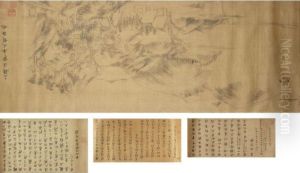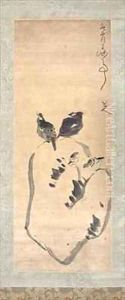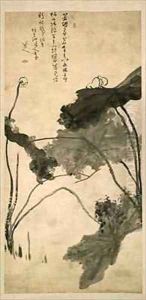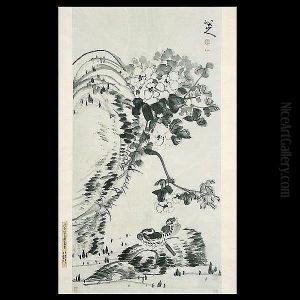Zhu Da Paintings
Zhu Da, also known as Bada Shanren, was a Chinese painter, calligrapher, and poet during the late Ming Dynasty and early Qing Dynasty. Born into the imperial family as a prince in Nanchang, Jiangxi Province, Zhu Da was a descendant of the Ming dynasty's Imperial Zhu family. Following the collapse of the Ming dynasty and the establishment of the Qing dynasty by the Manchu invaders, Zhu Da's life underwent dramatic changes.
Zhu Da renounced his princely title and became a Buddhist monk to avoid persecution under the new regime, which targeted remnants of the Ming dynasty. He spent several years moving among various monasteries. During this period, he began to practice painting and calligraphy, which he continued after he left monastic life and returned to secular living. He is known to have suffered from mental illness during his lifetime, which is often reflected in the eccentric and highly individualistic style of his artwork.
Zhu Da's work is characterized by a unique blend of tradition and innovation. His paintings often feature birds, flowers, and landscapes, executed with bold, expressive brushwork and an often enigmatic use of space. His calligraphy is also highly regarded and is seen as an extension of his artistic personality, marked by a similarly unorthodox and dynamic style.
Bada Shanren's art has been interpreted in many ways, with some scholars seeing his work as a veiled critique of the Qing dynasty and a testament to his loyalty to the Ming. His legacy includes a significant influence on later Chinese artists, and his paintings are considered among the masterpieces of Chinese art history. Today, Zhu Da's works are highly prized by collectors and can be found in major museums around the world. Despite the challenges he faced in his life, Zhu Da's artistic achievements have ensured his enduring fame and recognition as one of China's most important artistic figures.




